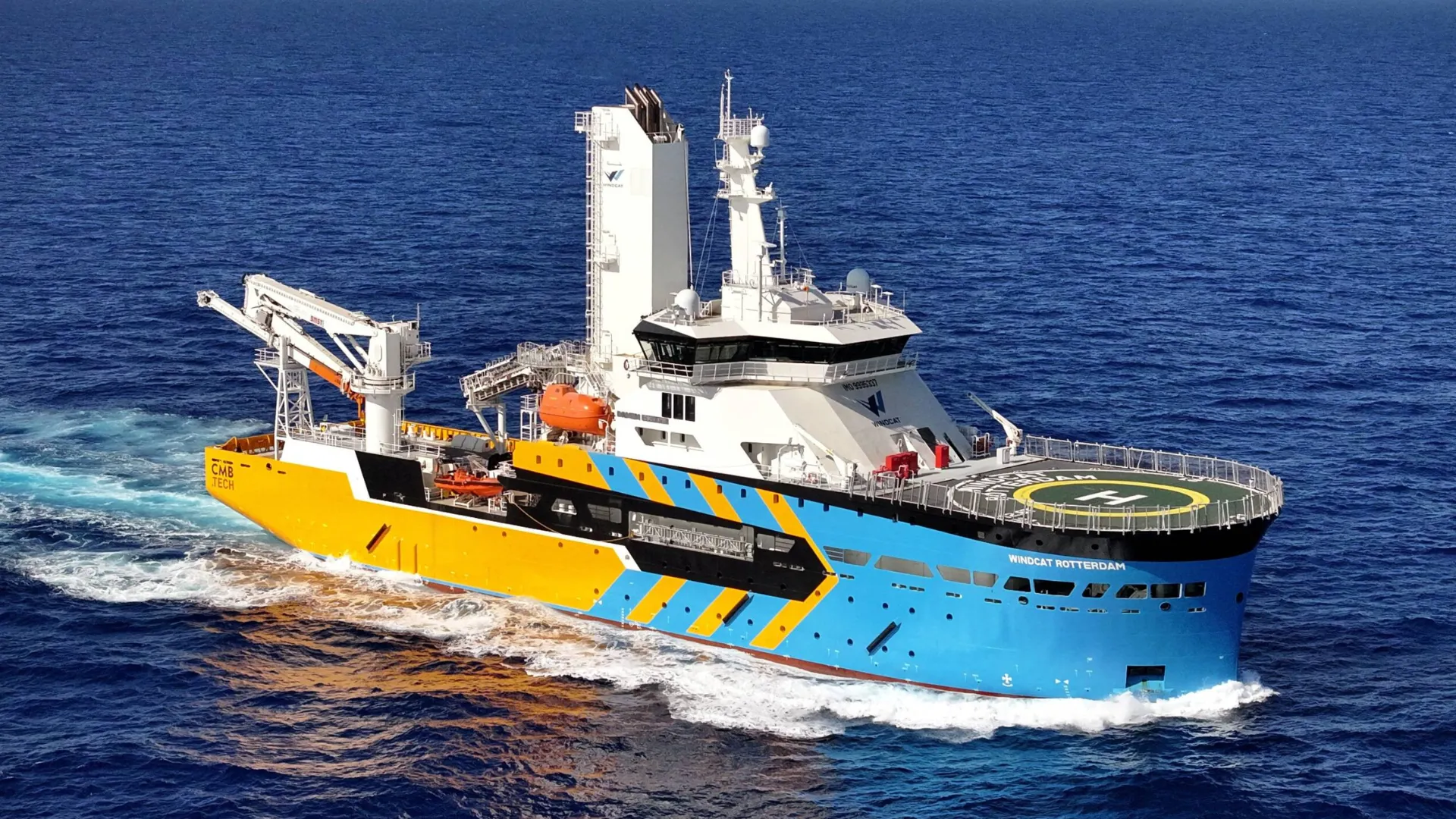Damen Shipyard in Ha Long, Vietnam, has officially delivered the Windcat Rotterdam, the first commissioning service vessel(CSOV) of the new Elevation series developed by Windcat in collaboration with Damen Shipyards and CMB.TECH.
The new stage of Windcat Rotterdam
Designed to assist in the construction and maintenance of offshore wind farms and other offshore infrastructure, the Windcat Rotterdam acts as a floating base for specialized equipment and personnel. It also has a capacity for 120 people, who are accommodated in single and double cabins, in addition to facilities such as gymnasium, recreation areas and high quality services.
The collaboration between Windcat, Damen and CMB.TECH has resulted in a vessel that reflects the highest standards of habitability and maritime operability, with autonomy of up to 30 days in demanding conditions.
On the other hand, the Windcat Rotterdam has a hybrid diesel-electric propulsion system with battery support, accompanied by an auxiliary genset with the capability of operating on dual-fuel hydrogen. This design, prepared to integrate full hydrogen technologies once the necessary certifications are obtained, will allow a CO₂ emission reduction of at least 30%.
The propulsion system includes four Schottel SRP 430 azimuth thrusters that ensure precise and stable maneuverability, even in adverse weather conditions. In addition, a 3D motion-compensated catwalk and a 10-ton crane, also stabilized, have been incorporated to enhance safety in transfer operations.
With the integration of the Windcat Rotterdam into its fleet, the company expands its reach beyond its traditional hydrogen-powered CTVs (Crew Transfer Vessels), adding larger-scale accommodation and logistics support capabilities. The delivery of this first CSOV lays the groundwork for the five additional vessels that will make up the Elevation series, all aimed at facilitating cleaner, safer and more flexible operations in the offshore energy sector.
Source and photo: Windcat

